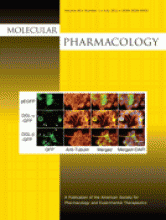Abstract
Curcumin (diferuloylmethane), a phenolic compound obtained from the rhizome of Curcuma longa, is known to have antiproliferative and antitumor properties. Thymidine phosphorylase (TP), an enzyme of the pyrimidine salvage pathway, is considered an attractive therapeutic target, and its expression could suppress cancer cell death induced by DNA damage agents. Excision repair cross-complementary 1 (ERCC1) is a protein involved the process of nucleotide excision repair. The ERCC1 gene is expressed at high levels in cancers and has been associated with resistance to platinum-based chemotherapy. In this study, the effects of curcumin on TP and ERCC1 expression induced by cisplatin in non–small-cell lung cancer (NSCLC) cell lines was investigated. Exposure of the NSCLC cells to various concentrations of curcumin (5–40 μM) down-regulates the mRNA and protein levels of TP and ERCC1 through destabilization of the mRNA and proteins via a mechanism involving inactivation of MKK1/2-extracellular signal-regulated kinase (ERK1/2). Depletion of endogenous TP or ERCC1 expression by transfection with specific small interfering RNAs significantly decreases cell viability in curcumin-exposed NSCLC cells. Curcumin enhances the sensitivity of cisplatin treatment for NSCLC through inactivation of ERK1/2 and by decreasing the TP and ERCC1 protein levels. Enhancement of ERK1/2 signaling by constitutively active MKK1/2 causes an increase in TP and ERCC1 protein levels and promotes cell viability after cotreatment with curcumin and cisplatin. Enhancement of the cytotoxicity to cisplatin by administration of curcumin is mediated by down-regulation of the expression levels of TP and ERCC1 and by inactivation of ERK1/2.
Footnotes
↵
 The online version of this article (available at http://molpharm.aspetjournals.org) contains supplemental material.
The online version of this article (available at http://molpharm.aspetjournals.org) contains supplemental material.This work was supported by the National Science Council of Taiwan [Grant NSC 99-2320-B-415-001-MY3].
Article, publication date, and citation information can be found at http://molpharm.aspetjournals.org.
doi:10.1124/mol.111.071316.
-
ABBREVIATIONS:
- NSCLC
- non–small-cell lung cancer
- ERCC1
- excision repair cross-complementation 1
- NF-κB
- nuclear factor-κB
- AP-1
- activator protein-1
- MAPK
- mitogen-activated protein kinase
- TP
- thymidine phosphorylase
- MG132
- N-benzoyloxycarbonyl (Z)-Leu-Leu-leucinal
- U0126
- 1,4-diamino-2,3-dicyano-1,4-bis(methylthio)butadiene
- PCR
- polymerase chain reaction
- GAPDH
- glyceraldehyde 3-phosphate dehydrogenase
- MTS
- (4,5-dimethylthiazol-2-yl)-5-(3-carboxymethoxyphenyl)-2-(4-sulfophenyl)-2H-tetrazolium
- CI
- combination index
- MKK
- mitogen-activated protein kinase kinase 1/2
- ERK
- extracellular signal-regulated kinase
- RT
- reverse transcription
- siRNA
- small interfering RNA
- MKK1/2-CA
- constitutively active MKK1/2.
- Received January 18, 2011.
- Accepted April 14, 2011.
- Copyright © 2011 The American Society for Pharmacology and Experimental Therapeutics
MolPharm articles become freely available 12 months after publication, and remain freely available for 5 years.Non-open access articles that fall outside this five year window are available only to institutional subscribers and current ASPET members, or through the article purchase feature at the bottom of the page.
|







